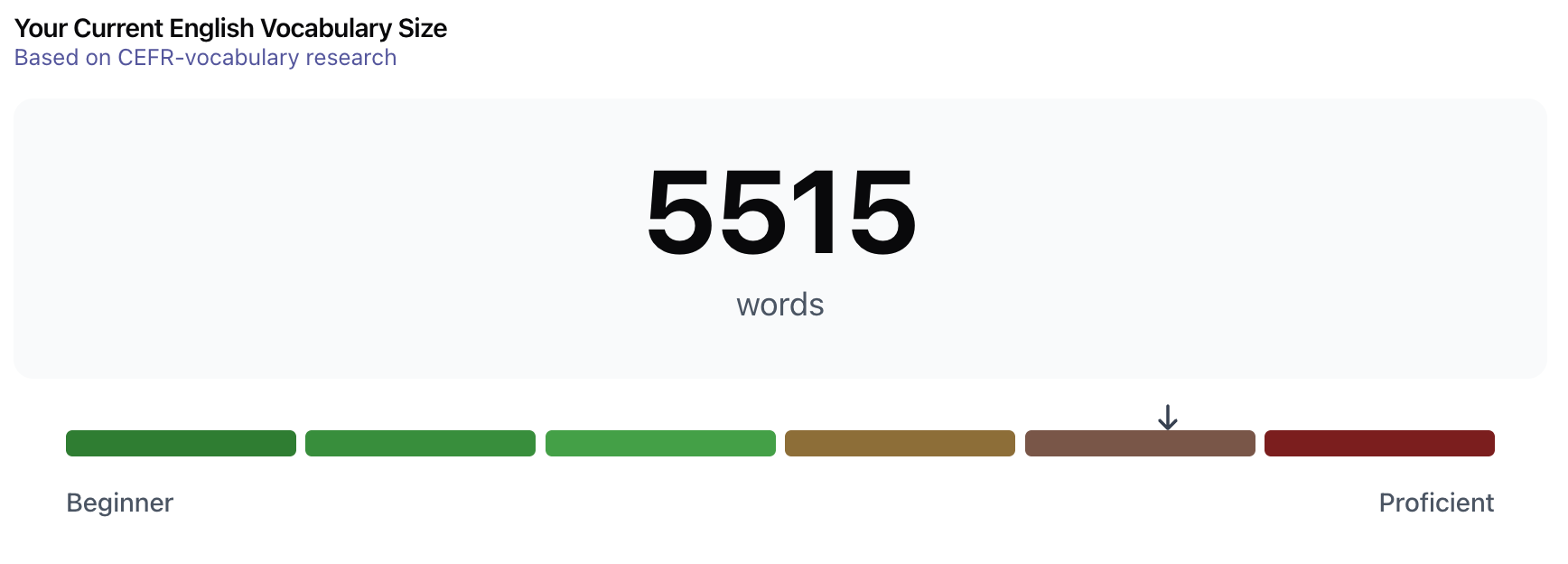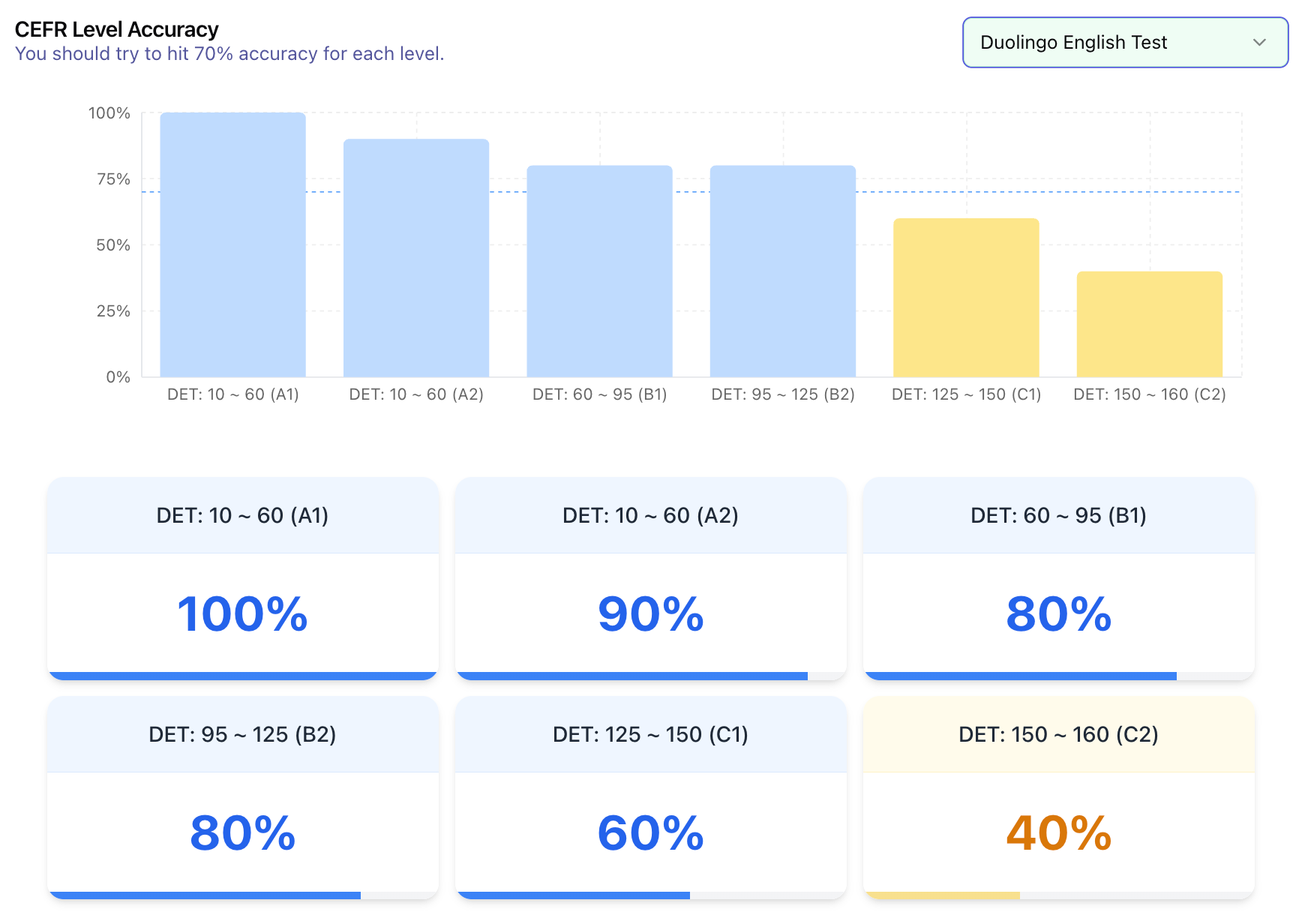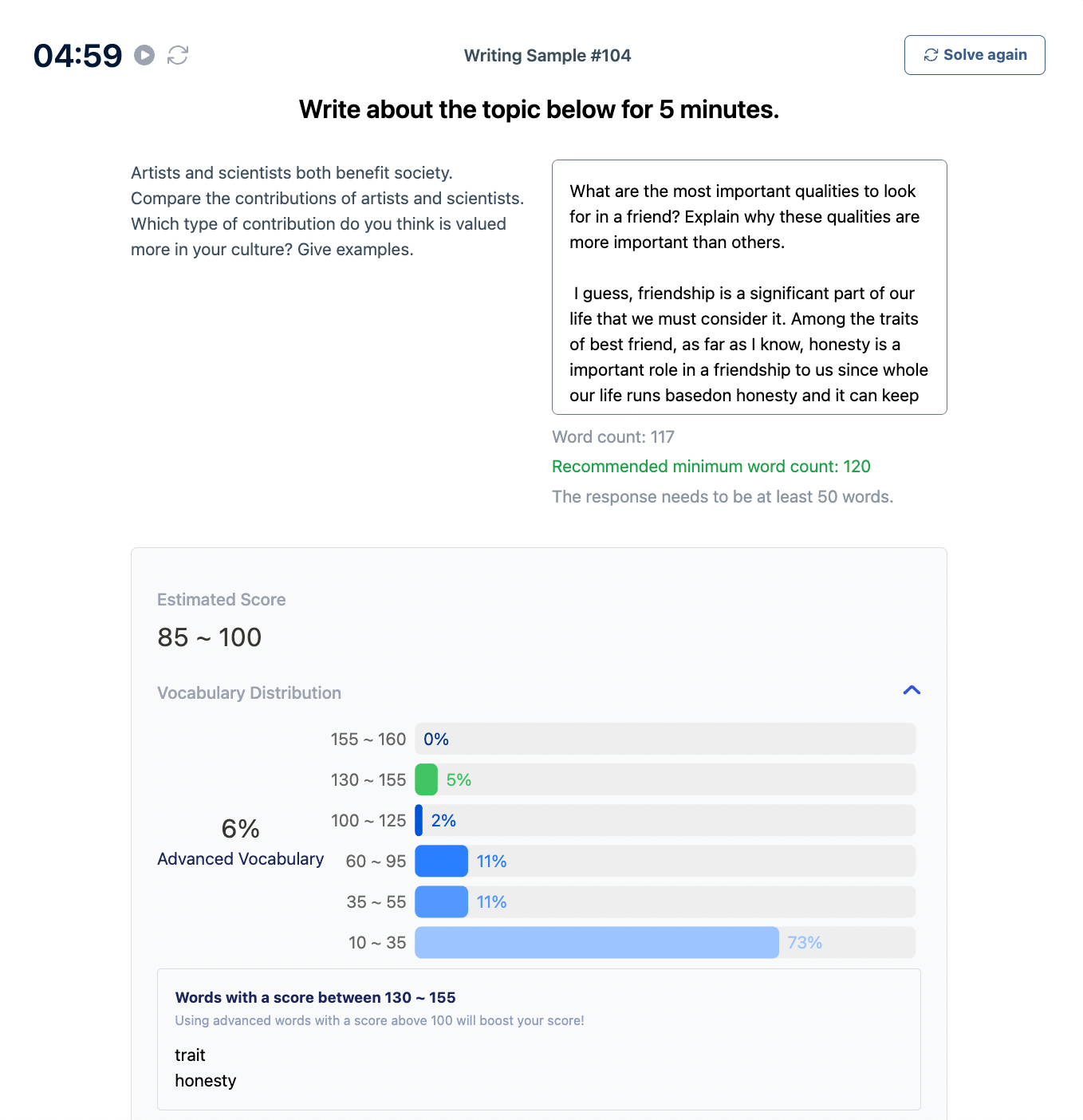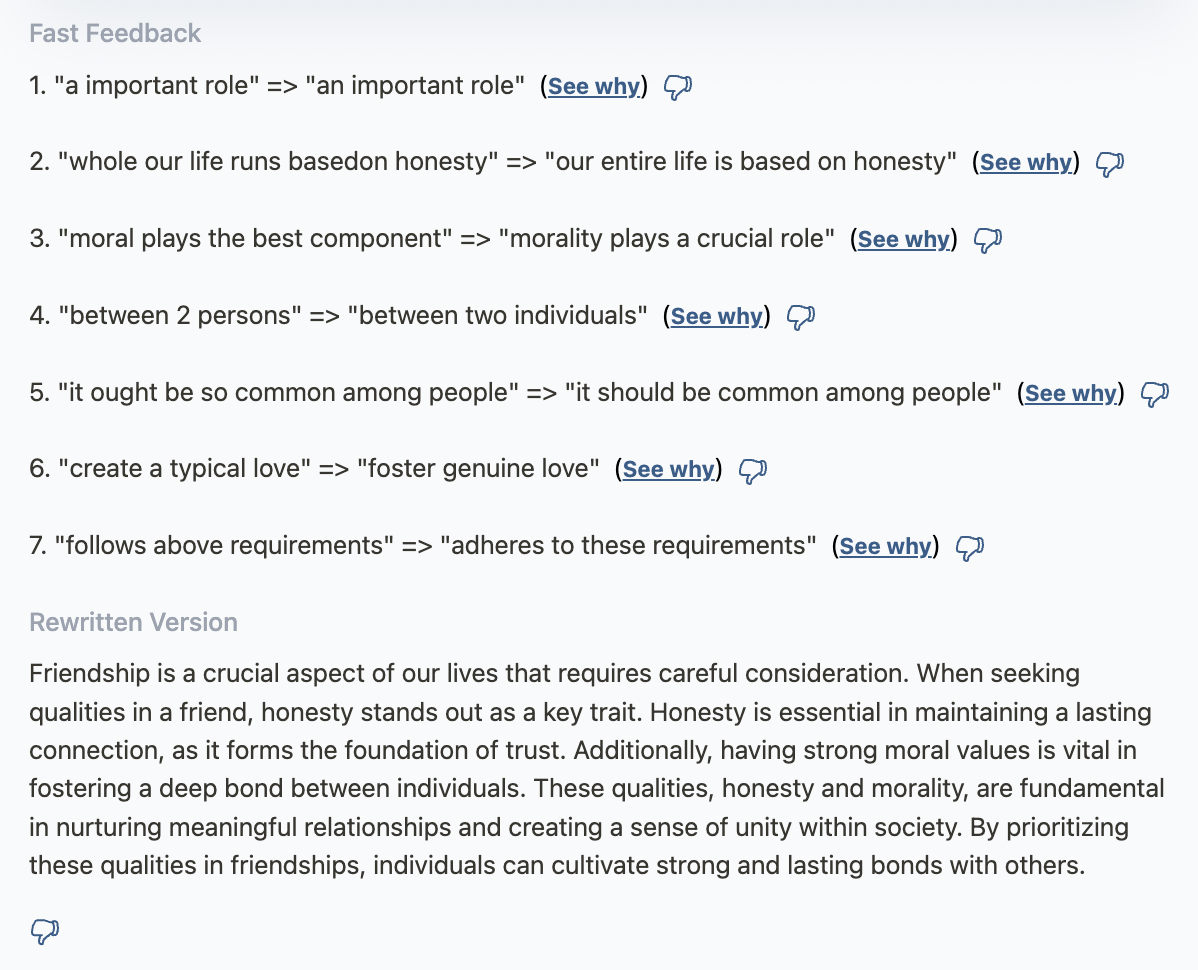15 Vocab Terms That Will Raise Your DET Score
One of the easiest ways to improve your score on the Duolingo English Test is by improving your vocabulary. In this article, I'm going to teach you 15 terms that are easy-to-use, useful, and that will raise your score on the test immediately.

Words that will raise your score on the Duolingo English Test
- However
- On balance
- Nonetheless
- As a result
- In contrast
- Although
- In my view
- In retrospect
- Profound
- In sum
- Depicts
- Judging by
- Background
- Foreground
- Make out
I also have a lesson video on our YouTube channel in which I cover all these words!
We also have slides with this content that you can download and share.
1. However
"However" is a direct synonym for the simpler word "but". The difference is that "however" is more formal, so it will gain you more points.
It is important to note that "however" requires a different grammar than "but". When you use "however", you need to start a new sentence.
For example, you could write: I wanted to go to the gym, but I was too busy.
If you used "however" instead, you would need to use two sentences like so: I wanted to go to the gym. However, I was too busy.
2. On balance
"On balance" is really useful for writing and speaking prompts which ask you to discuss the advantages and disadvantages of something. This is very common on the DET. Here's an example of a prompt like this:
Working from home has become popular, but working in an office is still common. Discuss the advantages and disadvantages of each. Which do you prefer and why? Provide examples.
You can use "on balance" to state your opinion succinctly. For example: Although there are advantages and disadvantages to both, on balance I prefer working from home.
3. Nonetheless
"Nonetheless" is another word that is really useful for prompts which ask you to discuss advantages and disadvantages.
You can use "nonetheless" to transition from one side of the argument to the other. In other words, if you are discussing the advantages of something and want to switch to talking about the disadvantages, you can use "nonetheless."
Here is an example, in response to the prompt above about working from home versus working in an office:
There are many advantages to working from home. First, it is more convenient. I do not have to commute to the office, so I save time. Second, it is cheaper. I do not have to go to a restaurant for lunch. Third, my home is more comfortable than the office.
Nonetheless, there are disadvantages to working from home. The main disadvantage is that I don’t get to spend time with my colleagues. In addition, I do not get to see as much of my city because I’m at home all day.
The addition of "nonetheless" to the second paragraph is a small change, but it provides a clear, elegant transition.
4. As a result
"As a result" is a more sophisticated way to say "so". It's important to remember that "as a result" requires a different grammar. Similar to "however", if you use "as a result" you need to start a new sentence.
For example, I could write: It was raining, so we did not go to the park.
If I wanted to replace "so" with "as a result", I would need to create a new sentence like this: It was raining. As a result, we did not go to the park.
5. In contrast
"In contrast" is an elegant, advanced way to show difference. In this sense, it's a synonym for "but" or "however."
Examples:
I like chocolate ice cream. In contrast, my girlfriend likes vanilla.
Paris is expensive. In contrast, Montreal is more affordable.
If you want to learn even more vocabulary that will raise your Duolingo English Test scores, you should check out Arno's free Vocabulary Builder. You can start by taking our free, 15-minute assessment that will show you the gaps in your vocabulary.


6. Although
You can use "although" instead of "but" or "however."
However, "although" requires a very different grammar. This is actually why you should use it. "Although" enables you to use a different sentence structure, which will get you more points for the grammatical complexity scoring criterion. (In our Complete Production Score course, I cover each scoring criterion in detail.)
Let's say we have the sentence:
I like the mountains, but my family likes the beach.
If we replaced "but" with "although", we could change the sentence to be:
Although my family likes the beach, I like the mountains.
In short, "although" can come at the beginning of the sentence. "But" comes in the middle.
I should note that "although" can also come in the middle of a sentence. For example: I like the mountains although my family likes the beach. But, I recommend that you just remember that "although" comes at the beginning of a sentence. You have plenty of other things you are trying to remember for the test! By using "although" at the beginning of a sentence, you can get more points.
7. In my view
This is a direct synonym for "I believe" or "In my opinion." But "in my view" is a little more rare and advanced, so it will get you more points! You use it just like you "I believe" or "In my opinion."
Examples:
In my view, family is the most important thing.
In my view, young people should focus on their education.
8. In retrospect
This is an advanced word that is useful when describing the past. It literally means "looking back." (In Latin, "retro" means "back" and "spect" means "to look".)
You can use "in retrospect" to say that something is clear now that was not clear in the past. Here are some examples:
I did not pass the exam. In retrospect, I should have studied more.
My experience of living in China was difficult. However, in retrospect I can appreciate all of the lessons it taught me.
9. Profound
"Profound" is a synonym for "important" and "significant". The difference is slight. "Profound" emphasizes that something goes deep. For example:
My trip through Vietnam had a profound impact on me.
This means that my trip through Vietnam changed me at a deep level.
Here's another example:
The new apartment buildings have profoundly changed the neighborhood.
10. In sum
This is a direct synonym for "in conclusion," but "in sum" is less common, so it will help you get more points. You can use it exactly like you would "in conclusion." For example, you can use it to begin your concluding sentence or paragraph:
In sum, I believe it is important for children to be taught about mental health in schools.
11. Depicts
This is a direct synonym for "shows". However, like so many of the other words in this article, it is rarer so it will get you more points! Instead of saying "shows" you can just say "depicts." For example: This picture depicts a family having dinner.
12. Judging by
"Judging by" is a really elegant word for picture description. You can use it to indicate why you are making a certain observation or conclusion about an image. In other words, it is a way to indicate your evidence.
Let me explain using examples.
When describing this image, I could say: Judging by the orange and red colors in the sky, I think that this picture was taken during sunset.
What I'm saying is that the red and orange colors in the sky indicate that it is sunset.
Here's another example:
Judging by her smile, she seems to enjoy the scent of the flower.
13. Background
"Background" refers to stuff behind the main things in a photo. For example:
In the background of this image, there are many tall buildings.
14. Foreground
"Foreground" is the opposite of the "background." While things in the background are far away, things in the "foreground" are close to the camera. For example:
In the foreground, there are people walking.
It's best to use "foreground" and "background" together because they are such closely related terms. Plus, each one is advanced so using both will get you more points!
15. Make out
"Make out" is a synonym for see. However, when you say, "I can make out" it implies that you can see something but that is difficult to do so.
Take this image for example:
I could say: I can see many cars on the roads. This would be correct. But because it is difficult to see the cars because they are small, I can say I can make out many cars on the road. and get more points.
If you want personalized vocabulary suggestions that will enable you to raise your score immediately, you should check out Arno! When you respond to one of our practice writing or speaking questions, you will get an instant estimated score as well as detailed feedback on your vocabulary, including which words you could have used instead to get a higher score.
Arno will even fix your grammar mistakes and rewrite your response to make it sounds like a native speaker wrote it!


For free in Arno, you get unlimited practice questions for every question type as well as a full mock test with scores and detailed feedback. Just click below to create your free account and get started practicing!
